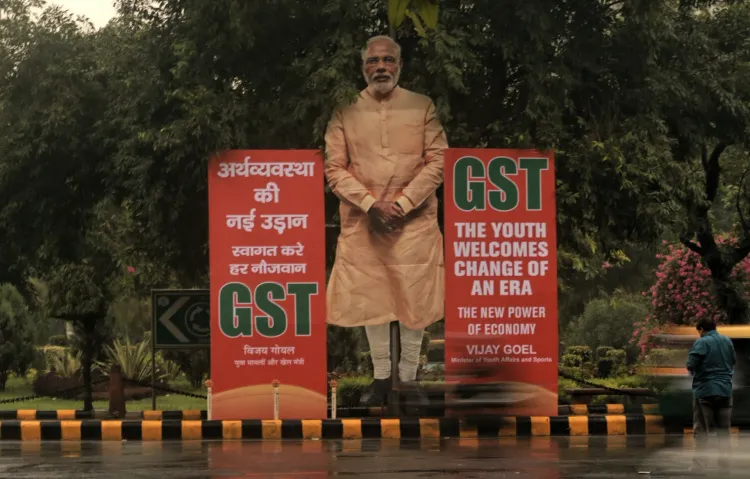How has GST Transformed India’s Economic Framework?

Synopsis
Key Takeaways
- GST has enhanced the Ease of Doing Business.
- Record GST collections indicate economic growth.
- GST has simplified tax compliance for small businesses.
- Significant savings for consumers on essential goods.
- GST has transformed the logistics industry.
New Delhi, July 1 (NationPress) Prime Minister Narendra Modi remarked on Tuesday that it has been eight years since the implementation of GST, a significant reform that has transformed India’s economic framework.
"By alleviating the compliance burden, it has significantly enhanced the Ease of Doing Business, especially for small and medium enterprises," PM Modi articulated.
He added, "GST has emerged as a robust engine for economic advancement, promoting genuine cooperative federalism by positioning states as equal partners in the endeavor to unify India’s market," as he stated on X.
At the launch on July 1, 2017, PM Modi referred to GST as “a revolutionary legislation for New India.” Eight years later, the statistics are telling with GST collections reaching a remarkable Rs 22.08 lakh crore in 2024-25, indicating a year-on-year growth of 9.4 percent. The taxpayer base has more than doubled, expanding from 60 lakh to over 1.51 crore under the GST framework.
The average monthly collection was an impressive Rs 1.84 lakh crore in 2024-25, marking a standout year. In the fiscal year 2020–21, total collections amounted to Rs 11.37 lakh crore, with a monthly average of Rs 95,000 crore. This figure increased to Rs 14.83 lakh crore the following year and further to Rs 18.08 lakh crore in 2022–23. By 2023–24, GST collections hit Rs 20.18 lakh crore, reflecting a steady growth in compliance and economic activity.
The One Nation One Tax initiative simplified tax compliance, lowered business costs, and enabled goods to transit seamlessly across states. It consolidated various indirect taxes under a single framework, replacing levies like excise duty, service tax, and VAT, thereby eliminating the cascading effect of taxes and ensuring uniformity in the tax system nationwide.
A Deloitte survey revealed that 85 percent of taxpayers reported a positive experience with GST, perceiving it as a more straightforward and transparent tax process that has facilitated business operations. This marks the fourth consecutive year of improving sentiment.
GST is regarded as a consumer-friendly reform that has eliminated multiple taxes and enhanced compliance, with average tax rates decreasing. Essential goods such as cereals, edible oils, sugar, snacks, and sweets now incur lower tax rates. A study by the Finance Ministry indicated that households have saved at least four percent on monthly expenses in total, resulting in reduced spending on daily necessities.
Moreover, GST has revolutionized the logistics sector. Long queues of trucks at state borders and corruption-prone checkpoints are now relics of the past. Goods have become more mobile across state lines.
According to various studies, transport times have improved by over 33 percent. Companies have also reduced fuel costs, leading to less congestion on major highways.









